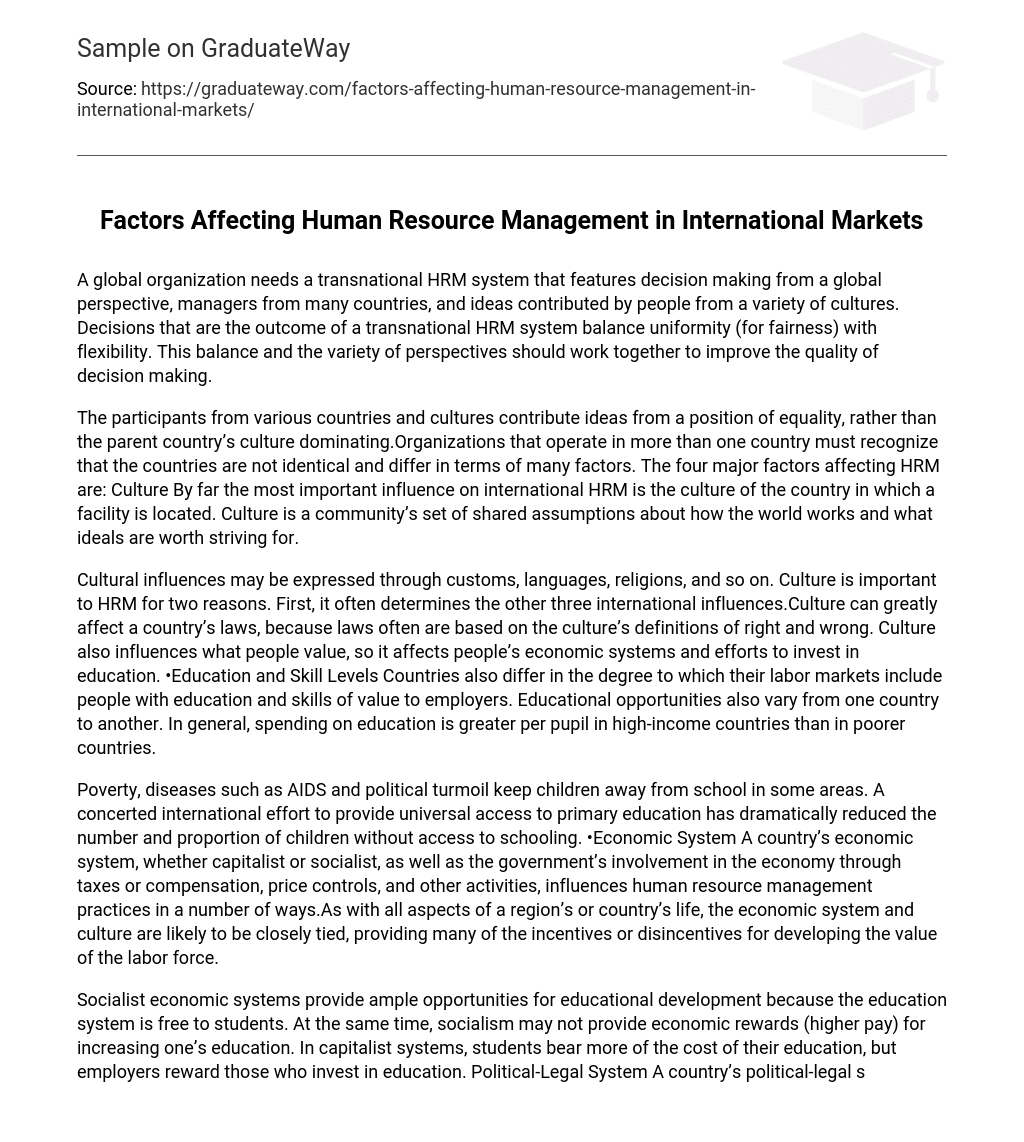A global organization needs a transnational HRM system that features decision making from a global perspective, managers from many countries, and ideas contributed by people from a variety of cultures. Decisions that are the outcome of a transnational HRM system balance uniformity (for fairness) with flexibility. This balance and the variety of perspectives should work together to improve the quality of decision making.
The participants from various countries and cultures contribute ideas from a position of equality, rather than the parent country’s culture dominating.Organizations that operate in more than one country must recognize that the countries are not identical and differ in terms of many factors. The four major factors affecting HRM are: Culture By far the most important influence on international HRM is the culture of the country in which a facility is located. Culture is a community’s set of shared assumptions about how the world works and what ideals are worth striving for.
Cultural influences may be expressed through customs, languages, religions, and so on. Culture is important to HRM for two reasons. First, it often determines the other three international influences.Culture can greatly affect a country’s laws, because laws often are based on the culture’s definitions of right and wrong. Culture also influences what people value, so it affects people’s economic systems and efforts to invest in education. •Education and Skill Levels Countries also differ in the degree to which their labor markets include people with education and skills of value to employers. Educational opportunities also vary from one country to another. In general, spending on education is greater per pupil in high-income countries than in poorer countries.
Poverty, diseases such as AIDS and political turmoil keep children away from school in some areas. A concerted international effort to provide universal access to primary education has dramatically reduced the number and proportion of children without access to schooling. •Economic System A country’s economic system, whether capitalist or socialist, as well as the government’s involvement in the economy through taxes or compensation, price controls, and other activities, influences human resource management practices in a number of ways.As with all aspects of a region’s or country’s life, the economic system and culture are likely to be closely tied, providing many of the incentives or disincentives for developing the value of the labor force.
Socialist economic systems provide ample opportunities for educational development because the education system is free to students. At the same time, socialism may not provide economic rewards (higher pay) for increasing one’s education. In capitalist systems, students bear more of the cost of their education, but employers reward those who invest in education. Political-Legal System A country’s political-legal system—its government, laws, and regulations—strongly impinges on human resource management. The country’s laws often dictate the requirements for certain HRM practices, such as training, compensation, hiring, firing, and layoffs. An organization that expands internationally must gain expertise in the host country’s legal requirements and ways of dealing with its legal system, often leading organizations to hire one or more host-country nationals to help in the process.





